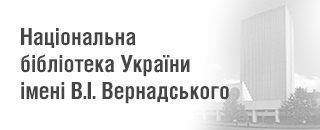ЄВРОПЕЙСЬКИЙ ДОСВІД ПУБЛІЧНОГО УПРАВЛІННЯ СФЕРОЮ СПОРТУ: СТРУКТУРНО-ФУНКЦІОНАЛЬНІ АСПЕКТИ
DOI:
https://doi.org/10.31470/2786-6246-2023-6-14-20Ключові слова:
сфера спорту, публічне управління, досвід ЄС, структурно-функціональний аспектАнотація
Розвиток фізичної культури і спорту як найменш витратний і найбільш ефективний засіб фізичного й морального оздоровлення нації, покликаний забезпечити формування фізичних, естетичних і моральних якостей людської особистості, профілактику захворювань, фізичної та психоемоційної рекреації і реабілітації людини, об’єднання сім’ї, організацію дозвілля. Фізкультурно-спортивні громадські рухи зближують особисті і громадські інтереси, формують здоровий морально-психологічний клімат у різних соціально-демографічних групах населення, особливо в молодіжному середовищі. Фізична культура, будучи частиною загальної культури людини, її здорового способу життя, багато в чому визначає її поведінку під час навчання, на виробництві, в побуті, у спілкуванні.
Механізми публічного управління у сфері спорту спрямовані на реалізацію основних управлінських функцій: планування, організаційні заходи, бюджетування, моніторинг, контроль. Реалізація функцій відбувається в системі суб’єктно-об’єктного управління шляхом реалізації нормативно-правових механізмів як основи законодавчого забезпечення процесів розвитку фізичної культури та спорту в ЄС. Важливим елементом публічного управління фізичною культурою та спортом є стейкхолдери та їх співпраця із органами публічної влади та місцевого самоврядування. Європейський досвід публічного управління реалізовується на рівні загальноєвропейської системи управління, незважаючи на схожу орієнтацію та стратегічні пріоритети національних моделей публічного управління кожної країни, існують суттєві відмінності та специфіка їх побудови.
В Україні відсутня функціональна орієнтація на розвиток сфери фізичної культури та спорту. Тому систематизація та узагальнення європейського досвіду публічного управління сферою спорту, зокрема щодо структурних та функціональних аспектів є важливим та актуальним предметом дослідження даної статті.
Посилання
Andreff, W. (2009). Public and private sport financing in Europe: the impact of financial crisis: 84th Western Economic Association International Conference. Vancouver.
Wąsik, J., Ortenburger, D., & Mosler, D. (2021). Perception of Self-Efficacy and Health-Related Behavior in Context of Taekwon-Do Sport Camps. Sustainability, 13(9), 4645. DOI: 10.3390/su13094645.
Xing, X., Church, A.G., O’Reilly, N., Pegoraro, A., Nadeau, J., Heslop, L., & Séguin, B. (2008). Olympic Games host and bid city marketing: exploring issue management in the relationships among event stakeholder groups. International Journal of Sports Marketing and Sponsorship, 9, 4, 77-91. https://doi.org/10.1108/IJSMS-09-04-2008-B009.
17 Goals to Transform Our World. www.un.org. Retrieved from https://www.un.org/sustainabledevelopment/
Keeling, D. (1972). Management in Government. London: Allen & Unwin.
Follett, M. (2013). Creating Democracy, Transforming Management. Tonn, Joan C., New Haven: Yale University Press.
Bouckaert, G. (2012). Modernizing the Rechtsstaat: Paradoxes of the Management Agenda. Berlin: Duncker & Humblot.
Likert, R. Management System Theory. Retrieved from http://www.learnmanagement2.com/likert.htm.
Lu, H.-F., & Lin, H.-W. (2021). Does the legacy governance of major sporting events affect urban development? The stakeholder’s perspectives on the Taipei 2017 Universiade. International Journal of Sports Marketing and Sponsorship, 22, 1, 87-106. https://doi.org/10.1108/IJSMS-02-2020-0022.
Lera-López, F., & Rapún-Gárate, M. (2011). Determinants of sports participation and attendance: differences and similarities. International Journal of Sports Marketing and Sponsorship, 12, 2, 66-89. https://doi.org/10.1108/IJSMS-12- 02-2011-B007.
Oh, T., Oh, J., Kim, J., & Kwon, K.D. (2019). Differences of perception between private and public officers in an organizing committee concerning stakeholders of an international sporting event. International Journal of Sports Marketing and Sponsorship, 20, 1, 127-142. URL: https://doi.org/10.1108/IJSMS-08-2017-0067.
Šerić, N., & Ljubic, J. (2018). Motives for Market Research in the Sports Industry. Market Research Methods in the Sports Industry. Emerald Publishing Limited, Bingley, 7-49. https://doi.org/10.1108/978-1-78754-191-720181002/.
Blashchak, I., Karpa, M., & Akimova, L. (2022). Organizational and management support of the sphere of sport tourism in Ukraine: legal aspect. Public Administration and Law Review, (3), 54-60. https://doi.org/10.36690/2674-5216-2022-3-54.







